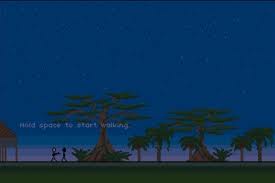Thinking Not Required
By leebmx 10 Comments
This turned into a bit of an essay quickly, my congrats if you get to the end.....

The Quick Look for Fez provoked a familiar reaction from portions of the gaming community. Although there were some positive or interested voices a small majority of comments were damning of a release they deemed ‘the game de jour for indie devs looking for wank material’ or another game hyped by ‘pretentious assholes. ’ While some of this distaste can be explained by people’s aversion to Phil Fish, its expression feels like a gag reflex many have toward games which appear arty and I wondered why, and if this was justified in any way.
Each time a game comes out which looks different, asks unusual questions of gamers or tries to include themes and ideas outside of gaming’s usual milieu it seems to antagonise certain sections of the community. This response would be understandable if it was a considered reaction to psuedry, or shallowness masquerading as insight, but generally, and especially it seems in the case of Fez, this is just a gut reaction rather than serious criticism. The forums seemed desperate to deride Fez, calling it boring, simple, ‘is that all there is’ ran one quote, another, ‘it looks like a basic New Grounds game.’ Clearly to anyone who has played Fez or even listened to the excellent discussion on this week’s Bombcast this is not the case. While not being to everyone’s taste, it is obvious the game is seriously complex and creates a world of codes and symbols for the player to puzzle over. The meat of the game is much more than jumping, rotating and collecting.
Emperor’s New Clothes?
It’s not just Fez, Braid and Limbo are two other games which have suffered sniping over their degree of pretentiousness and have been derided for attempts to be profound. Why do they provoke these reactions? Are the detractors right and these games are the emperors new clothes, naked of gameplay and fun, enjoyed by deluded audiences desperate to be hip, or are there a section of gamers scared of games which innovate outside of basic gameplay and graphics power.

The answer, I think, is somewhere in between. I think there certainly are a section of gamers who feel threatened by people being or trying to be thoughtful and intelligent. These are the same people who would pick on the clever kid at school or pride themselves on never having read a book, but I think there is more to this than mere boorishness and something else is disturbing those who scorn fashionable indie games.
I think the issue is related to games’ youth as a pastime, and what the pastime entails. The clue is in the name – games – these are things which are supposed to be fun and enjoyable and for most people fun is something simple, almost thoughtless. Games are a way of escaping from the pressures of life, a release from being judged, tested, assessed and challenged. In gaming you can find release from your perceived intellectual or social failures and be who you want, it is a safe zone where preference confers no real intellectual caché. If you prefer Quake over Team Fortress or Halo over Call of Duty your taste or skill might be criticised but they are not choices which divide audiences into sophisticates and plebs, just different flavours of simple fun. However if your taste is for Hollywood blockbusters and Dan Brown novels there will always be someone, probably with a funny haircut and thrift store clothes, looking down their nose at you. The uniformity of gaming reviews in comparison to cinema reviews bares this out. In gaming blockbuster games get big sales and 5 and 4 stars uniformly, but film critics tend to sneer at the big Hollywood releases even as the public pack out the picture houses. Gaming’s short history has meant that up till now it has avoided this split into Arthouse and Mainstream or Literature and Genre Fiction. I think some members of the community, whose taste falls in the latter of these categories fear this distinction coming to gaming and being left among the lumpen once again. This may not be a conscious motive as they deride the lastest indie sensation but I think it is there, lurking at the back of their minds.

This is a shame because the two can exist side by side, but I understand the fear that some people have that they are going to be left in the dumb half of culture constantly apologising for their lowbrow taste, that somehow their simple paradise of fun is going to be highjacked by arty types and sneering aesthetes. As one person wrote in comments to Patrick’s article on the Cambodia “not game” The Killer – ‘Games are meant to be a fun escape from the real world, I don’t play games to get a deep message.’
Too Much Hype
However it doesn’t follow that all criticism of this nature is invalid. I think the current state of the industry can starve games of intelligent thought (although there are exceptions among the AAA titles) and this can make the audience hankering after these experiences too eager to praise the next big thing. The expense of making Video Games is something that can work against the creative process, something pointed out by Peter Molyneux in his interview about the Molyjam with Patrick. He says,
.....when you’re making a title that is going to end up costing millions and millions, tens of millions of dollars, Patrick, you just cannot have that attitude of ,”Well, let’s just do it.” It’s all got to be meticulously and carefully planned and structured and thought through and discussed and that does take the creative energy out of it. It must, whether it be a triple A computer game or a film..

The point here that he is making is that the size and cost of making games stifles their creativity. Designer’s ideas are always being filtered through different teams and focus groups and creative risks are avoided when large sums are at stake. This leaves us with a selection of titles which while fun may not really show us anything new outside of updating old gameplay ideas and boosting visuals. For the media and enthusiasts who play these games this can get boring and the anticipation for a game which looks innovative or striking can lead too quickly to hype and often this over inflates the importance of certain products. It is also dangerous to artistic or mistake distinctive style for depth and true conceptual innovation. Limbo is a game which got critics and bloggers frothing superlatives (it is currently running at 90 on Metacritic) but was this praise justified? Limbo is a beautiful looking game and a fun platform-puzzler and was thought a worthy candidate in the ‘can games be art’ discussion with much made of the themes supposedly contained in its mysterious narrative. Although I enjoyed the game immensely I thought its stylish black and white presentation and ambiguous story gave an illusion of depth and no real thought was provoked outside of its fun puzzles. Articles and discussions sprung up about what the game meant or what it was trying to say when to me it was just a series of different puzzle arenas connected by a unifying art style. I thought the ambiguity of meaning was actually an absence and while it is no real criticism to say Limbo was just a great looking and fun puzzler, that’s all it was.
So I can understand why some people get snarky about commentators cooing over the next interesting little gem but I also understand this sometimes misplaced enthusiasm is there. Video games are not filled with many spaces for quiet reflection and generally don’t leave you with too much to ponder outside of how to up your APM or kill ratio and now the audience has grown and expanded far outside the teenage male’s bedroom it is not surprising that there are group of gamers hungry for something thoughtful from their experiences. When you compare what videogames want to say about the world with what is being discussed in cinema or literature you realise how far they have to go before they can really reflect human experience with the same depth as these two artistic institutions.
I am not sure if Videogames will ever reach this point and I fully understand that there is a good portion of the community that don’t care if they do. However would also say that there is no reason for anyone to fear or deride those that try, it’s never a bad thing to think hard about your art or try to push it in weird and innovative directions, even if these experiments fail sometimes. The main thing we as consumers can do is make sure we are always using our critical faculties to distinguish the merely stylish from the truly visionary, and the updated from the innovative.
